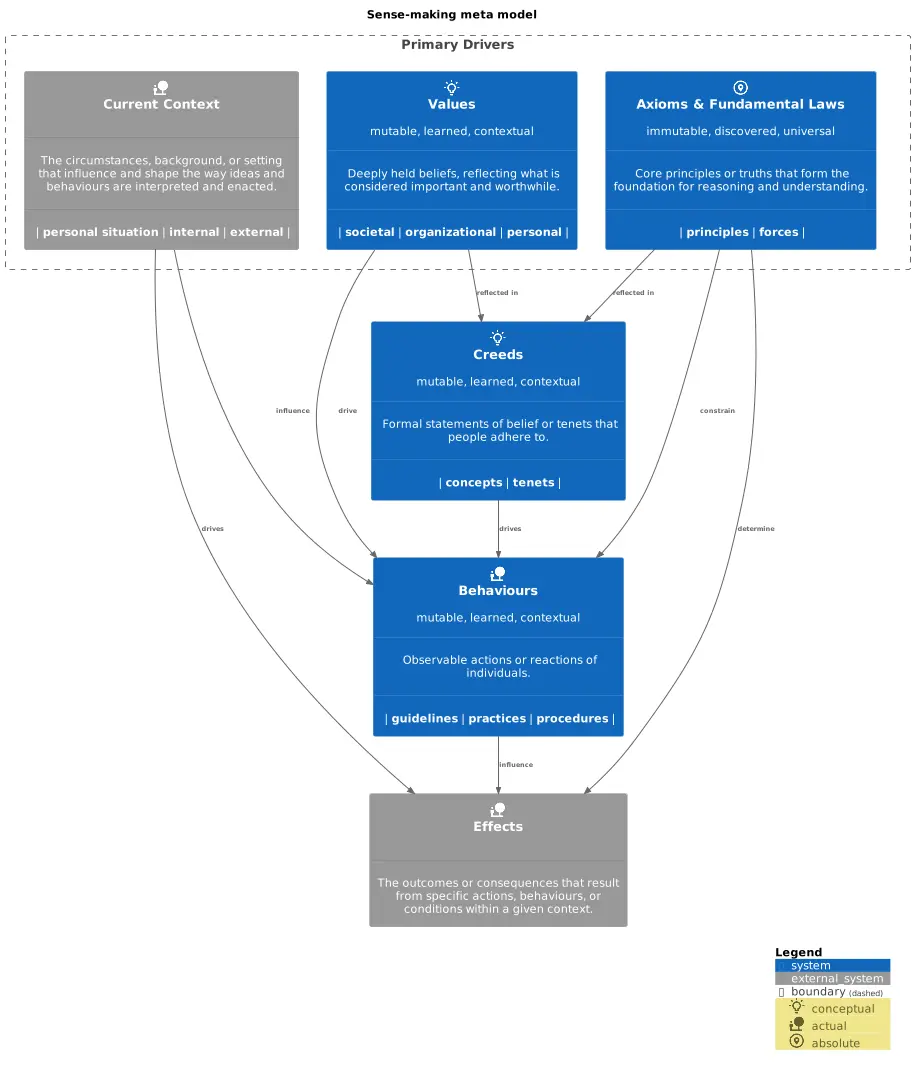Contextual guidance Every practice and concept includes when to apply it, what forces enable or resist it, and what trade-offs you’ll face. You’ll understand not just the technique, but the situation it’s built for.

Pragmatic Penguin Patterns
A practical knowledge base for technical professionals who value context over commandments
You’ve probably encountered an elegant solution to a problem and thought: “Why didn’t I see that sooner?” The reason is simpler than you’d expect: you simply didn’t know it was an option. Maybe someone mentioned the approach once, but the context got lost in translation.
Technical work is full of advice: best practices, frameworks, methodologies, and patterns. The challenge isn’t finding them. The challenge is understanding when they apply and why they matter in your specific situation.
This knowledge base offers something different: structured, searchable insights that explain not just what techniques exist, but when they’re valuable and what trade-offs they involve. Think of it as a reference library built by practitioners, for practitioners. Whether you’re debugging your first merge conflict or architecting systems for a distributed team, there is something for you here.
We don’t prescribe solutions. We help you build judgment by showing how concepts, practices, and mental models apply across contexts. Your situation is unique. Your approach should be, too.
Technical work is full of advice: best practices, frameworks, methodologies, and patterns. The challenge isn’t finding them. The challenge is understanding when they apply and why they matter in your specific situation.
This knowledge base offers something different: structured, searchable insights that explain not just what techniques exist, but when they’re valuable and what trade-offs they involve. Think of it as a reference library built by practitioners, for practitioners. Whether you’re debugging your first merge conflict or architecting systems for a distributed team, there is something for you here.
We don’t prescribe solutions. We help you build judgment by showing how concepts, practices, and mental models apply across contexts. Your situation is unique. Your approach should be, too.
What makes this different
pattern-based knowledge, not prescriptive playbooks
Jargon decoded Technical conversations are full of shorthand. Our glossary and primers translate specialized terms into plain language, so you can follow discussions and contribute with confidence.
Curated, not exhaustive We don’t catalog every framework. Instead, we share practical insights drawn from real work, backed by recommended resources when you want to dig deeper.
Start exploring
pick a path that matches where you are now
Whether you’re onboarding to a new role, leading a team through a transition, or just curious how experienced practitioners approach common challenges, you’ll find structured guidance here.
New to a specific technology? Explore Primers to understand the philosophy and “point” of different programming languages and tools, then dive into Concepts that shape how experienced professionals think about problems.
Looking for actionable techniques? Browse Practices to find structured approaches you can apply immediately, complete with trade-off analysis and real-world context.
Need to decode a term or framework? Check the Glossary for plain-language definitions, or visit Bibliography for recommended deep dives.
Want to understand the methodology? Read the Approach page for details on pattern languages, the sense-making meta model, and how this library integrates with other frameworks.
There’s no required reading order. Jump in where your curiosity leads, and follow the links between related ideas.
New to a specific technology? Explore Primers to understand the philosophy and “point” of different programming languages and tools, then dive into Concepts that shape how experienced professionals think about problems.
Looking for actionable techniques? Browse Practices to find structured approaches you can apply immediately, complete with trade-off analysis and real-world context.
Need to decode a term or framework? Check the Glossary for plain-language definitions, or visit Bibliography for recommended deep dives.
Want to understand the methodology? Read the Approach page for details on pattern languages, the sense-making meta model, and how this library integrates with other frameworks.
There’s no required reading order. Jump in where your curiosity leads, and follow the links between related ideas.
